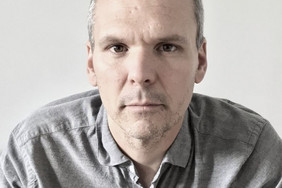A highly active trombonist on the Montreal music scene, Jean-Nicolas Trottier is part of a number of jazz ensembles, including the Joe Sullivan Big Band, the Jazzlab Orchestra and the Orchestre national de jazz de Montréal (an ensemble incidentally in residence at the Faculty of Music). He’s collaborated with internationally acclaimed artists: Steve Davis, Dave Brubeck, Ingrid Jensen, Seamus Blake and Ari Hoenig, to name a few.
As an arranger and composer – his catalogue consists of over 400 works – he’s worked with the Orchestre national de jazz de Montréal, the Orchestre symphonique de Montréal and the Orchestre symphonique de Québec. In 2011 he founded the Jean-Nicolas Trottier 10tet, with whom he’s recorded several of his own compositions.
The holder of bachelor’s degree in performance from McGill University, Jean-Nicolas Trottier has received a number of distinctions, among them the Galaxy Rising Star award at the Ottawa Jazz Festival, in 2003, the Grand Prix General Motors at the 2004 Montreal International Jazz Festival with the Odd Jazz Ensemble, and the Discovery award from the Montreal OFF Jazz Festival in 2005.
- How do you see your arrival at the Faculty of Music teaching team?
Although I’ve been a lecturer at the Faculty of Music for about 15 years, I’m looking forward to starting my new mandate. The possibility of working with a superb team and being even more actively involved in the future of the Faculty of Music is something that really and truly interests me. I have several ideas about the development of the jazz department, especially as regards composition and arrangement. The fact of being able to share my vision for the jazz program and discuss it with the other teachers is enormously motivating for me.
- In what way does your career as a performer influence your teaching?
Being present on the music scene and staying in touch with new trends drives us to reinvent ourselves, to constantly push our limits and give the best of themselves. I think it’s essential for teachers to live what they teach from day to day: that guarantees the quality and authenticity of the learning. This way we can offer a teaching approach better tailored to the reality of the current music world. Moreover, when students have the chance to mix with people who teach them in a professional context, the material transmitted is more concrete – which is always an advantage when an art is being taught.
- How do you tailor your teaching to the music context of Québec in order to foster student integration into the professional world?
I’ve been active on the Québec music scene for over 20 years, so I’m very familiar with how it functions. Working or having worked with a number of big names in jazz, I’m aware of what it takes to build a career in Québec. So I try to share the “tricks of the trade” with my students in order to promote as much as possible the impact they make outside the university. On top of that, it’s not unusual for me to collaborate with some of my former students on different professional projects in jazz, in pop music or in world music. I’m always very happy when things turn out well for them.
- What are the events or artists that have most left their mark on you during your career in music?
The musicians on the Montreal scene, my colleagues and my comrades have always influenced me. Among the artists who’ve shaped me– and who still shape me – I can’t help but name Joe Sullivan, Yannick Rieu, Vic Vogel, Christine Jensen, Rémi Bolduc, André White, Samuel Blais, Alex Côté, Patrice Richer, Rafael Zaldivar, Rémi-Jean LeBlanc… It’s a long list. Concerning jazz composition and arrangement, I’m a fan of Thad Jones, Slide Hampton, Jim McNeely, Gil Evans and Nelson Riddle, among others. Being a trombonist, I especially appreciate the playing of J.J. Johnson, Frank Rosolino, Nils Wogram and Slide Hampton. In fact, all the music I play or listen to influences me directly or indirectly, and I always look forward to carrying on with my research from day to day in order to fuel my inspiration and broaden the range of my knowledge.
February 2022
